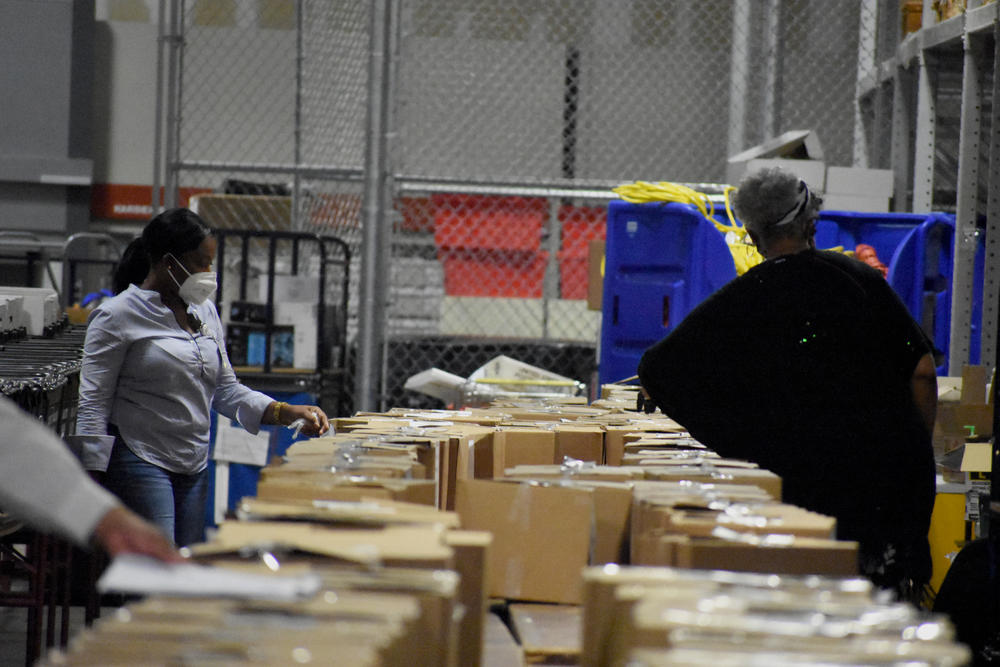
Caption
Workers sort ballots in Fulton County in summer 2020. The State Election Board has appointed a bipartisan three-member panel for a performance review of Fulton's elections board, the latest step in a lengthy process allowed under new state elections law.
Credit: Stephen Fowler | GPB News

